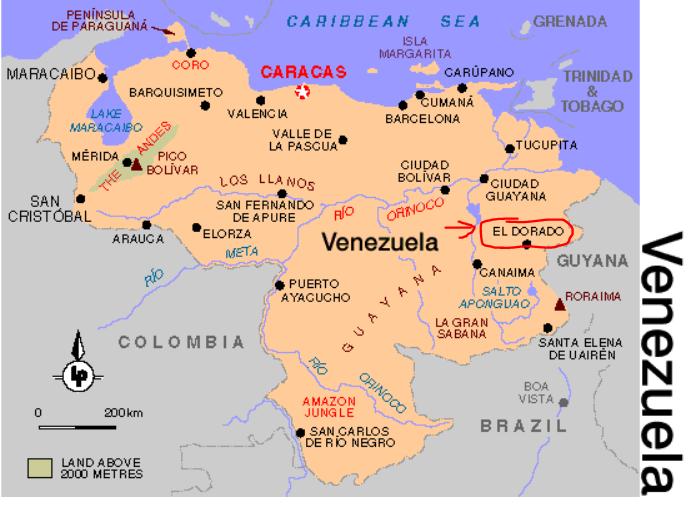In Venezuela’s El Dorado, residents weigh gold to buy daily groceries

El Dorado, a mining town in Venezuela’s Bolívar state, sees gold being used as daily currency due to the collapse of Venezuela’s formal economy and severe currency depreciation.
Key Points:
-
Gold Instead of Cash:
Residents pay for groceries using small flecks of gold, weighed on scales by shopkeepers.
Example:-
0.02g = maize meal
-
1g = full grocery kit (worth $85–100)
-
-
Daily Life and Economy:
-
Most of El Dorado’s 5,000 residents are engaged in legal or illegal mining.
-
With limited banking access, people store gold in pill bottles or paper wrappers.
-
Gold retains value, unlike the bolívar (Venezuela currency) which lost 50% of its value in a year.
-
-
Historical & Geopolitical Context:
-
The town originated as a military outpost amid the 1895 Essequibo dispute between Venezuela and Britain (now with Guyana).
-
Region rich in gold, diamonds, bauxite, iron, and coltan — leading to exploitation and violence.
-
-
Challenges:
-
Environmental degradation and “ecocide” from unregulated mining.
-
Use of toxic mercury in gold separation poses health hazards.
-
Violence and extortion by organized crime groups; 217 killed in gang clashes (2016–2020).
-
-
Living Conditions:
-
Despite natural wealth, poverty is widespread.
-
Hard work yields minimal returns — often just 1 gram of gold for a day’s labor, used to buy basic food.
-
For Mains:
-
Case study on informal economies, resource curse, illegal mining, and alternative currencies
-
Relevant for GS Paper III (Economy, Environment), GS Paper II (Governance and International Relations)
-
Demonstrates the impact of hyperinflation, state collapse, and natural resource mismanagement.
